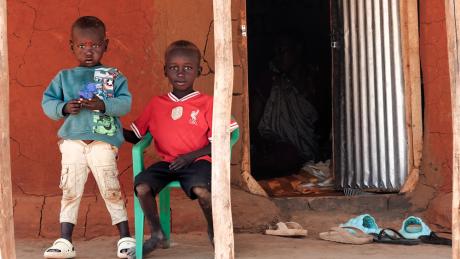
Partnering with organisations like the Lutheran World Federation (LWF), MAF ensures that critical aid and support reach isolated areas like the Palorinya refugee settlement, where hope is often very rare.
When Rose Puru, now 24, fled South Sudan with her family in 2018, she left behind a country torn apart by violence.
“We came here because of the war,” she recalls. “People were fighting, killing each other. That’s why we ran.”
Rose, like many others, found safety in Uganda’s sprawling refugee settlements, but life here is far from easy.
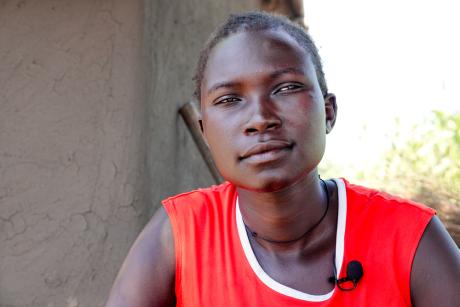
Rose’s dream is simple but powerful: she wants to finish her education, earn her degree, to be able to help her mother and community.
“But from here, there is no way to get money,” she says. “That’s why I had to drop out of school.”
Despite the hardships, she holds onto the hope that one day she’ll be able to make a difference—not just for herself, but for the people she loves.
Uganda is now home to over 1.7 million refugees, spread across 13 settlements. Ruth Jack, MAF’s Country Director for Uganda, describes the situation as critical. “The number of refugees here isn’t going down; it’s only increasing. Conflicts in neighbouring countries like South Sudan and the Democratic Republic of Congo are driving more and more people across the border, making Uganda the country with the largest refugee population in Africa,” she says.
The number of refugees here isn’t going down; it’s only increasing.
Despite the best efforts of Uganda’s government and aid organizations, resources are stretched thin.
“The global crises we hear about—from Ukraine to Gaza—are pulling attention and funding away from Uganda’s refugee crisis,” Ruth explains. “Yet the need here is only growing.”
MAF has become a vital partner to organisations working on the ground, ensuring that aid workers can quickly and safely reach these remote settlements. In partnership with LWF, MAF flies staff and supplies to places like Palorinya, bypassing the difficult and time-consuming road journeys that in this case would take up to 14 hours.
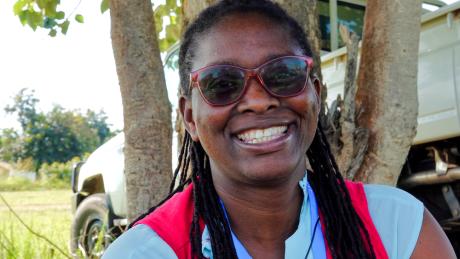
Inside the refugee camps, the challenges are immense. Nagudi Lydia Sarah, Protection Coordinator for LWF, explains how her team works tirelessly to support the most vulnerable.
“Women and children make up 80% of the refugees here, and they are often the ones most affected by violence,” she says. “Our work is to prevent gender-based violence, protect children, and ensure that justice is accessible to all.”
In addition to protection efforts, LWF and other partners work to restore a sense of community and dignity in these settlements. They have planted trees, drilled boreholes, and provided essential services, but much of this work depends on the funding available.
“When we had sufficient funding, we were able to ensure that communities had access to water and basic services,” Nagudi says. “But now, those resources are dwindling.”
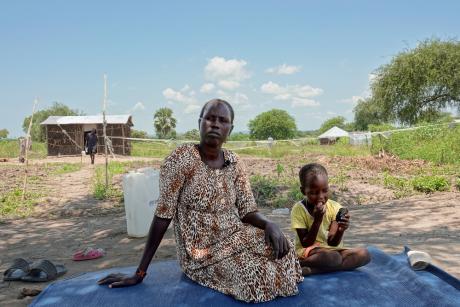
For MAF, flying aid workers to these remote locations is more than just providing transportation—it’s about creating a lifeline to those who might otherwise be forgotten.
Ruth Jack puts it simply: “At MAF Uganda, we serve the people who serve refugees. Without our flights, many of these workers wouldn’t be able to reach the settlements they serve.”
At MAF Uganda, we serve the people who serve refugees. Without our flights, many of these workers wouldn’t be able to reach the settlements they serve.
While aid workers use MAF to travel to these hard-to-reach places, refugees like Rose are dreaming of a future far beyond the camps.
“I don’t want to stay here,” Rose says. “I want to go far. Maybe India, Dubai, or even Australia. Life here is not easy.”
Her dreams are echoed by others, like Tut Thuok, a father of nine, he took over wife and Children from his brother who died, and his extended family in South Sudan have all perished. Tuk fled South Sudan with his family, because of the war and his disability that made it impossible to stay around in those hard circumstances, he wanted to make sure his family had a future together. A pastor in his church in South Sudan helped him to reach Uganda with his family. But life in the camp isn’t easy either. Tut explains how life has been in the camp.
“We don’t have enough food,” he says. “The food we receive has been reduced, and my wife just had another baby, one week ago. It’s hard to see a future like this.”
Life is tough for the family. But Tut has not given up. He is still trying his best to make a better future for them as a family, step by step.
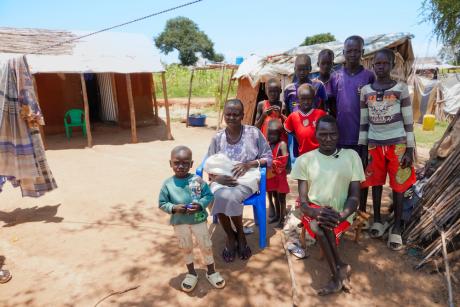
As long as there are refugees like Rose and Tut dreaming of a better life, and organisations like LWF working to support them, MAF will play a crucial role in making those dreams possible.